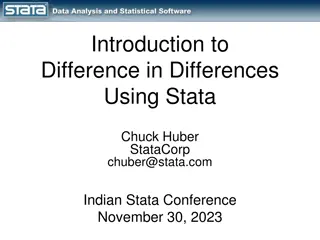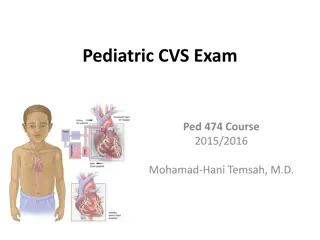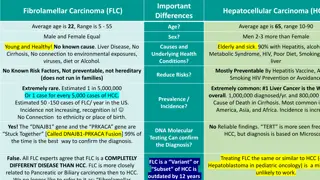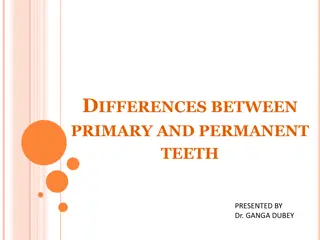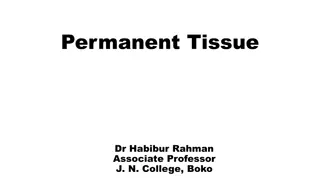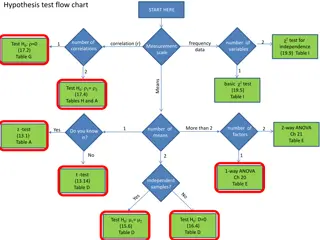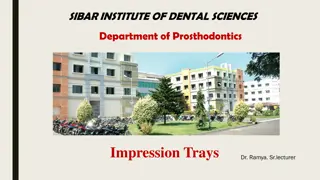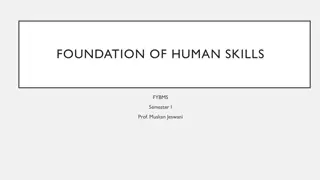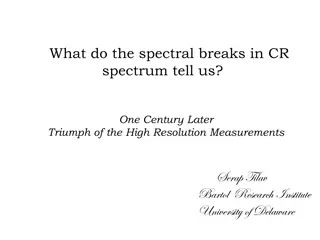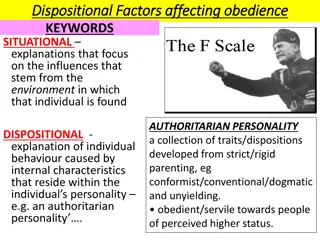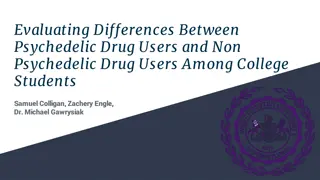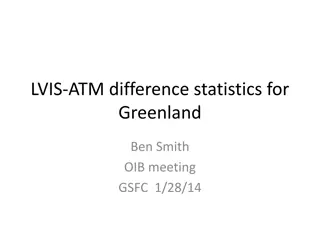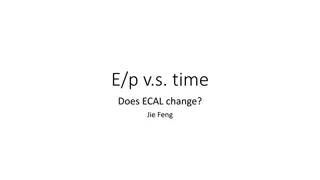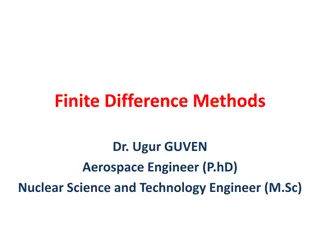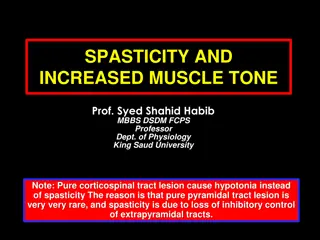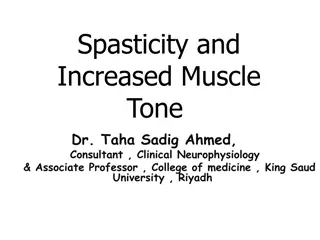College Transition Planning for Students with Learning Differences
Explore transition planning for students with learning differences like dyslexia, dyscalculia, dysgraphia, auditory and visual processing disorders, and nonverbal learning disabilities. Understand executive functioning challenges and characteristics of ADHD in educational settings.
5 views • 37 slides
Learning Intentions: We will learn how to compare songs and poems. We will use comparative language to show similarities and differences.
Explore the art of comparing songs and poems, using comparative language to highlight similarities and differences. Dive into Venn diagrams, linking words, and key terms to analyze genres like Reggae, Irish Ballads, and Rap music.
1 views • 10 slides
Introduction to Difference in Differences Using Stata
Learn about Difference in Differences analysis using Stata with Chuck Huber at the Indian Stata Conference. The presentation covers the conceptual introduction, parallel trends assumption, and more using practical examples and panel data. Download slides and resources for further exploration.
3 views • 93 slides
Exploring Magnetism: Properties, Differences, and Similarities
Discover the properties of magnets and magnetic materials, understand the differences and similarities between permanent magnets and electromagnets. Delve into the basics of magnetism, explore magnetism stations, hypothesize about magnetic attraction, and learn interesting facts about magnets. Engag
3 views • 18 slides
Understanding Bone Anatomy and Composition
Explore the intricate details of bone structure and function, from the classification of bones by shape to the constituents of bone tissue. Learn about the essential role bones play in providing structural support, protection, and blood cell production. Delve into the anatomy of long and flat bones,
7 views • 31 slides
Pediatric Cardiovascular Exam Overview
Explore the differences between pediatric and adult cardiovascular exams, highlighting key differences in disease patterns, examination approaches, and objectives. Learn about the importance of distinguishing between routine well-baby exams and evaluations of ill children, along with step-by-step gu
6 views • 24 slides
RPO Companies vs. Traditional Recruitment Agencies_ Key Differences
RPO Companies vs. Traditional Recruitment Agencies_ Key Differences
0 views • 3 slides
Understanding The Differences Between Hourly Care and Live-In Care
Choosing the right type of Home Health Aide NJ for your loved one can be challenging. Whether you need occasional support or constant supervision, understanding the differences between hourly care and live-in care is crucial for making the best decision.\n\nFor more info visit: \/\/carebridge.care\/
1 views • 6 slides
Medical Cannabis vs. CBD What You Need to Know
In recent years, cannabis has gained significant attention for its potential therapeutic benefits. However, with the increasing popularity of cannabis and its derivatives, many people are confused about the differences between medical cannabis and CBD. Understanding these differences is crucial for
1 views • 1 slides
Understanding the Differences Between Fibrolamellar Carcinoma (FLC) and Hepatocellular Carcinoma (HCC)
Fibrolamellar Carcinoma (FLC) and Hepatocellular Carcinoma (HCC) are distinct liver cancers with important differences in age of onset, underlying causes, diagnostic markers, metastatic patterns, symptoms, treatment options, and outcomes. FLC primarily affects young and healthy individuals with no k
0 views • 4 slides
Differences Between Primary and Permanent Teeth Explained
Dive into the distinctions between primary (baby) and permanent teeth presented by Dr. Ganga Dubey. Explore general variances, eruption sequences, crown characteristics, and histological differences. Understand individual variations in tooth morphology for a comprehensive comparison.
0 views • 39 slides
Machine Shop Safety and Best Practices for Precision Machining
Safety is paramount in the machine shop. Ensure proper safety measures like wearing safety glasses, appropriate clothing, and using guards on machines. Precision measuring tools must be calibrated and used correctly for accurate results. Machine setups require rigidity and proper tools for efficient
0 views • 14 slides
Exploring 2x2 Matrices in Political Science: An Irreverent Perspective
Delve into the world of 2x2 matrices in political science with a humorous twist, uncovering their foibles, fallacies, and effectiveness. From youthful rigidity to complex behavioral continuums, this unconventional take on matrices unveils their application in various scenarios like spouse choices, b
0 views • 34 slides
Understanding Plant Permanent Tissues: Parenchyma, Collenchyma, Sclerenchyma
Plant permanent tissues, including parenchyma, collenchyma, and sclerenchyma, play crucial roles in the structure and support of plants. Parenchyma is a versatile tissue that aids in storage and rigidity, while collenchyma provides mechanical support and elasticity in growing plant parts. Sclerenchy
0 views • 31 slides
Understanding Analysis of Variance (ANOVA) for Testing Multiple Group Differences
Testing for differences among three or more groups can be effectively done using Analysis of Variance (ANOVA). By focusing on variance between means, ANOVA allows for comparison of multiple groups while avoiding issues of dependence and multiple comparisons. Sir Ronald Fisher's ANOVA method provides
0 views • 28 slides
Understanding Kampavata: A Comprehensive Overview of Tremor Disorders in Ayurveda
Explore the concept of Kampavata, a type of Vata disorder characterized by tremors, rigidity, and slowness of movement in Ayurveda. Learn about its symptoms, etiological factors, and insights from ancient Ayurvedic texts. Understanding Kampavata sheds light on the traditional approach to diagnosing
1 views • 19 slides
Overview of Impression Trays in Dentistry
Impression trays in dentistry are crucial tools used to create negative imprints of dental structures for various procedures. They come in different types such as stock trays and special trays, each serving specific purposes. The requirements for an effective impression tray include rigidity, proper
2 views • 29 slides
Understanding Parkinsonism: Symptoms, Classification, and Pathology
Parkinsonism encompasses a group of progressive syndromes with symptoms such as bradykinesia, tremors, and rigidity. Parkinson's Disease is the most common form, but there are various classifications including primary and secondary causes. Pathologically, it involves the loss of dopaminergic neurons
0 views • 20 slides
Understanding Movement Disorders and Parkinson's Disease
Movement disorders encompass a range of conditions like myoclonus, chorea, hyperkinetic tremor, dystonia, and more. Definitions of terms like bradykinesia, rigidity, and parkinsonism help in understanding these disorders better. Parkinson's disease, a common condition associated with parkinsonism, i
0 views • 15 slides
Understanding Human Nature and Individual Differences in Foundation of Human Skills
Explore the foundational concepts of human behavior, individual differences, and organizational culture in the study of human skills. Delve into topics such as human nature, personality, attitudes, intelligence, and learning in Prof. Muskan Jeswani's course. Understand the significance of inter- and
0 views • 11 slides
Understanding Movement Dysfunction in Sports Medicine
Movement dysfunction in sports medicine can stem from various factors such as structural instability, loss of range of motion, functional rigidity, poor balance, and more. Clinical movement analysis plays a vital role in identifying muscle imbalances and guiding exercise interventions to enhance ath
0 views • 21 slides
Understanding Denotative Meaning and Translation Issues
Denotative meaning in translation poses challenges due to the elastic and indeterminate nature of meaning, especially in dealing with the cognitive or literal sense of words. Polysemy, homonymy, and synonymy contribute to complexities in determining precise denotative meanings. The rigidity and flex
0 views • 40 slides
Exploring Sequences and Patterns in Mathematics
Dive into the world of sequences and patterns by exploring expressions, common differences, and nth terms. Discover how to create sequences with specific common differences, identify terms within sequences, and use Venn diagrams to visualize different scenarios. Uncover the rules for constructing nt
0 views • 13 slides
Understanding Spasticity and Increased Muscle Tone in Neurological Disorders
Spasticity and increased muscle tone are common features in neurological disorders, characterized by hyperactive stretch reflexes and muscle contractions. Spasticity is velocity-dependent and associated with upper motor neuron lesions, leading to increased resistance to passive movement. Rigidity, o
0 views • 28 slides
Understanding Ankylosing Spondylitis: Causes, Symptoms, and Treatment
Ankylosing spondylitis is a chronic form of arthritis primarily affecting the spine. It leads to joint fusion and eventual rigidity, known as bamboo spine. The condition, more common in young men, is characterized by unknown causes but is believed to have genetic links. Inflammation-regulating facto
0 views • 32 slides
Gender Differences in Obedience Studies
Research studies on gender differences in obedience reveal varying levels of obedience between men and women. While some studies show similarities in obedience levels, others suggest potential differences attributed to factors like empathy and assertiveness. Contradictory findings exist, with some s
0 views • 9 slides
Limitations of Schmidt Rebound Hammer Test
The Schmidt rebound hammer test is a quick and inexpensive method to check concrete uniformity. However, limitations include sensitivity to test surface smoothness, specimen size and rigidity, age of specimen, moisture conditions, type of coarse aggregate, type of cement, and carbonation of the conc
0 views • 5 slides
Understanding Malignant Hyperthermia: Causes, Management, and Epidemiology
Malignant Hyperthermia (MH) is a genetic disorder of skeletal muscle triggered by certain anesthetics, leading to a hyper-metabolic state. The uncontrolled release of calcium results in muscle rigidity, metabolic acidosis, hyperthermia, and other serious complications. MH was first described in the
0 views • 24 slides
Insights into Cosmic Ray Spectrum Breaks and Hardening after Centuries of High-Resolution Measurements
Spectral breaks in cosmic ray (CR) spectrum reveal rigidity-dependent behaviors, such as proton break at 240 GeV and remarkable hardening post-breaks. Various experiments like PAMELA, ATIC, CREAM II, and others showcase unique features and spectral indices, shedding light on CR composition and accel
0 views • 15 slides
Understanding Dispositional Factors in Obedience Behavior
Dispositional factors, such as the authoritarian personality developed from strict parenting, play a significant role in influencing obedience behavior. Adorno's research on the authoritarian personality highlights traits like blind respect for authority, conventionalism, and cognitive inflexibility
0 views • 10 slides
Understanding Polymers: Types and Properties
Polymers are large molecules composed of repeated subunits, playing essential roles in everyday life. They can be natural or synthetic, with unique physical properties like toughness and viscoelasticity. Polymers are classified into thermoplastics, thermosets, and elastomers, each with distinct char
0 views • 22 slides
Evaluating Differences Between Psychedelic Drug Users and Non-Psychedelic Drug Users Among College Students
This study investigates the differences between college students who use psychedelic drugs and those who do not. It explores the potential therapeutic benefits of psychedelic-assisted therapy, the classification of different psychedelic substances, and the need for research on recreational psychedel
0 views • 10 slides
Unsupervised Multiword Expression Extraction Using Measure Clustering Approach
Goal of this study is to develop an unsupervised method for extracting multiword expressions (MWEs) like idioms, terms, and proper names of different semantic types. The research focuses on properties of MWEs, data analysis, statistical measures, and clustering results to supplement lexical resource
0 views • 44 slides
Exploring the Romantic Era: Poetry, History, and Major Poets
A detailed exploration of Romantic Poetry from 1798-1832, encompassing the defining characteristics, historical background, major poets including Wordsworth and Keats, and the influence of key events like the French Revolution. Romanticism is characterized by subjectivity, imagination, love for the
0 views • 4 slides
Analyzing ATM-LVIS Difference Statistics for Greenland
The presentation discusses the analysis of ATM-LVIS difference statistics for Greenland, highlighting proposed processing refinements that are expected to have a minimal impact. The data editing process for ATM and LVIS measurements, histogram of slope-corrected differences, differences by slope and
0 views • 10 slides
Analysis of E/p Position Changes in Particle Reconstructed Energy Over Time
In the analysis of E/p position changes for electron, proton, and helium particles over time, a noticeable increase in the E/p peak position for electrons was observed, while the E/p peak positions for protons and helium remained relatively stable, especially for EnergyD. The changes observed after
0 views • 23 slides
Recognizing and Managing Meningitis in Children: Key Points and Procedures
Amidst images of diagnostic criteria and contraindications, this content discusses signs of meningitis in children, the importance of lumbar punctures, and contraindications for immediate LP procedures. It emphasizes key symptoms like nuchal rigidity, altered consciousness, and signs of increased IC
0 views • 41 slides
Overview of Finite Difference Methods in Computational Fluid Dynamics
Discretization of equations is crucial in CFD, and Finite Difference Methods play a key role. Utilizing Taylor series, forward differences, rearward differences, and central differences, these methods transform partial differential equations into solvable algebraic forms. Understanding these techniq
0 views • 32 slides
Understanding Spasticity and Muscle Tone Disorders
Spasticity is a motor disorder characterized by increased muscle tone and exaggerated reflexes, typically associated with upper motor neuron lesions. This article explains the differences between upper and lower motor neuron lesions, the neurophysiology of spasticity, causes, effects, and treatments
0 views • 23 slides
Understanding Spasticity: Definition, Clinical Features, and Neurophysiological Basis
Spasticity is a velocity-dependent resistance to stretch encountered in various medical conditions like stroke, multiple sclerosis, and cerebral palsy. This condition results from an imbalance between excitatory and inhibitory influences on motoneurons. Different from rigidity, spasticity involves c
0 views • 25 slides


